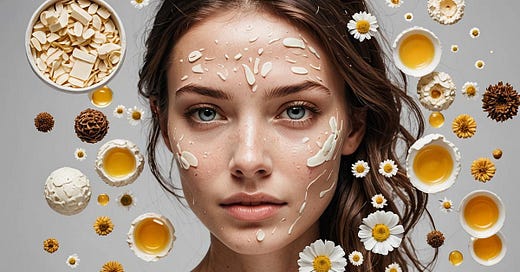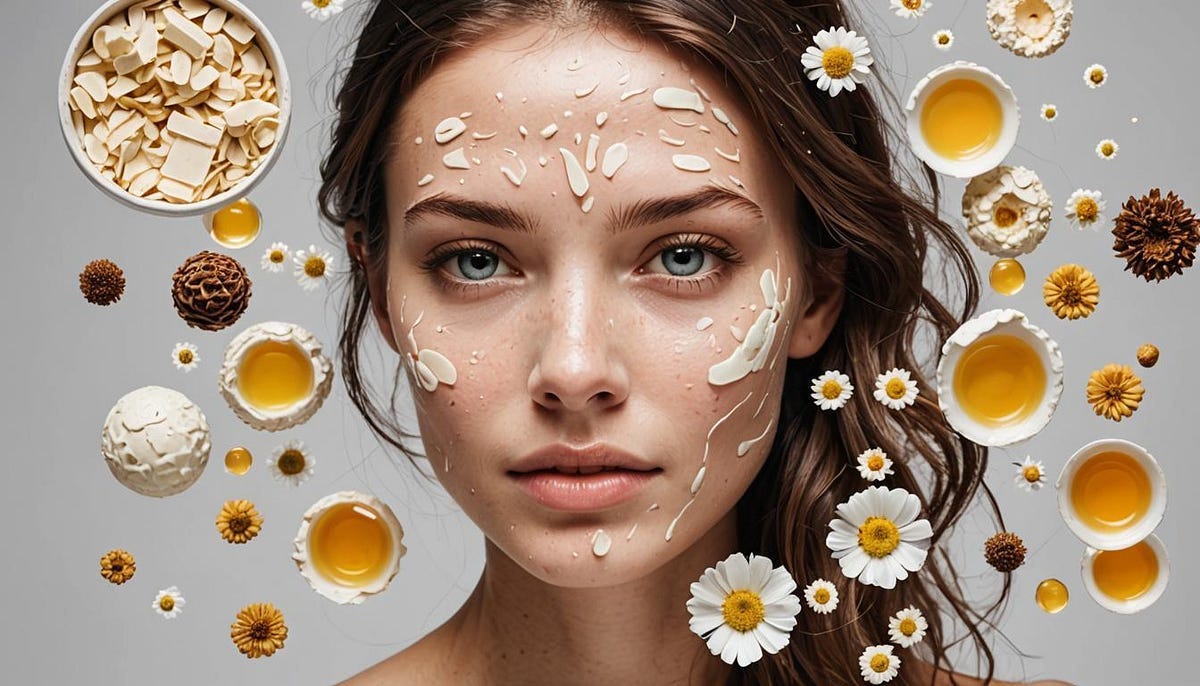The link between probiotics and skin health
There’s a lot of research at the moment into gut microbes and how they affect our health, but my interest was sparked by how these gut inhabitants can change the appearance of our skin.
Here’s what I’ve found, have a look.
In recent years, the buzz around probiotics has moved beyond digestive health to an unexpected area, our skin. It turns out that these beneficial bacteria, known for their role in gut health, also have a significant impact on our skin’s health and appearance. Let’s examine how probiotics can be a game-changer for anyone looking to achieve a healthier, more radiant complexion.
Understanding Probiotics and the Gut-Skin Axis
Before we look at the benefits of probiotics for the skin, let’s understand what probiotics are. Probiotics are live microorganisms, primarily bacteria, that are good for our health, especially our digestive system. But their benefits are not confined to gut health alone, they also play a crucial role in maintaining healthy skin.
The connection between our gut and skin, known as the gut-skin axis, is key to understanding how probiotics work to improve skin health. This axis suggests that the state of our gut microbiome, the community of microorganisms living in our digestive tract, can directly affect our skin’s health and appearance.
How Probiotics Benefit Your Skin
Reducing Inflammation and Oxidative Stress
Inflammation and oxidative stress are two major culprits behind various skin conditions, including acne, eczema, and premature aging. Probiotics help combat these issues by improving the gut microbiome’s composition, leading to reduced inflammation throughout the body, including the skin.
This can result in clearer, more youthful-looking skin.
Improving Skin Conditions
Conditions like eczema, atopic dermatitis, acne, and allergic inflammation can all benefit from the use of probiotics. By influencing the gut-skin axis, probiotics help modulate the immune system and reduce inflammation, which are crucial in managing these skin conditions.
Enhancing the Skin’s Natural Barrier
Topical probiotics, these are ones you put directly on your skin, act as a protective shield on the skin’s surface, preventing harmful microbes from causing inflammation, redness, or acne. By maintaining a healthy balance of microorganisms on the skin, probiotics help preserve the it’s natural barrier, keeping it hydrated and protected against environmental stressors.
Specific Probiotic Strains for Skin Health
Research has identified several probiotic strains that offer specific benefits for skin health, including:
- Lactobacillus: Known for its anti-inflammatory properties, it can help reduce acne and other inflammatory skin conditions.
- Bifidobacterium: Helps improve skin hydration and barrier function, making it beneficial for dry skin and eczema.
- Vitreoscilla: Found to enhance skin’s resistance to environmental stressors.
- Streptococcus thermophilus: Boosts skin’s production of ceramides, key lipids that help retain moisture.
- Bacillus coagulans and Staphylococcus epidermidis: These strains have been shown to protect against harmful bacteria and support skin health.
Incorporating Probiotics into Your Skin Care Routine
To reap the benefits of probiotics for your skin, consider incorporating them both orally and topically into your routine. Probiotic supplements can help improve your gut microbiome, while topical probiotic-infused skincare products can directly benefit your skin’s surface.
Remember, as with any supplement or skincare product, it’s essential to choose high-quality options and consult with a healthcare professional, especially if you have underlying health conditions or skin concerns.
The link between probiotics and skin health is a fascinating area of research that offers promising solutions for various skin issues.
By supporting a healthy gut microbiome and applying probiotics topically, you can harness these microorganisms’ power to achieve a clearer, more radiant complexion. As we uncover the mysteries of the gut-skin axis, probiotics stand out as a natural and effective way to enhance our skin’s health and beauty.
For more information on probiotics and skin health, consider exploring resources like Healthline’s article on “Brainy Beauty: What Do Probiotics Have to Do with Your Skin?” and scientific reviews available on PubMed.
These sources provide in-depth insights into the benefits of probiotics for skin health and the latest research findings in this exciting field.
Citations:
[1] https://www.healthline.com/health/probiotics-skin-care





